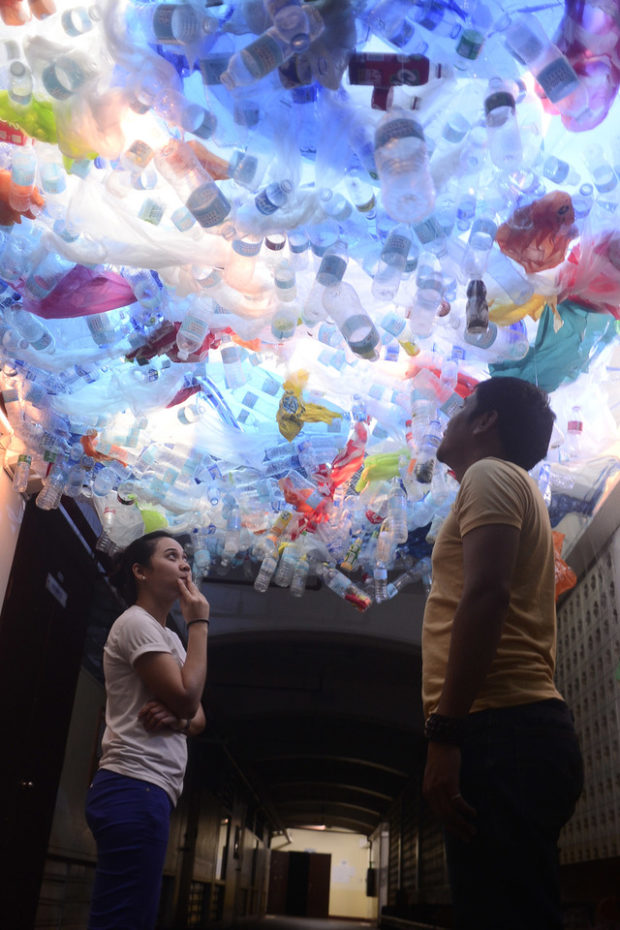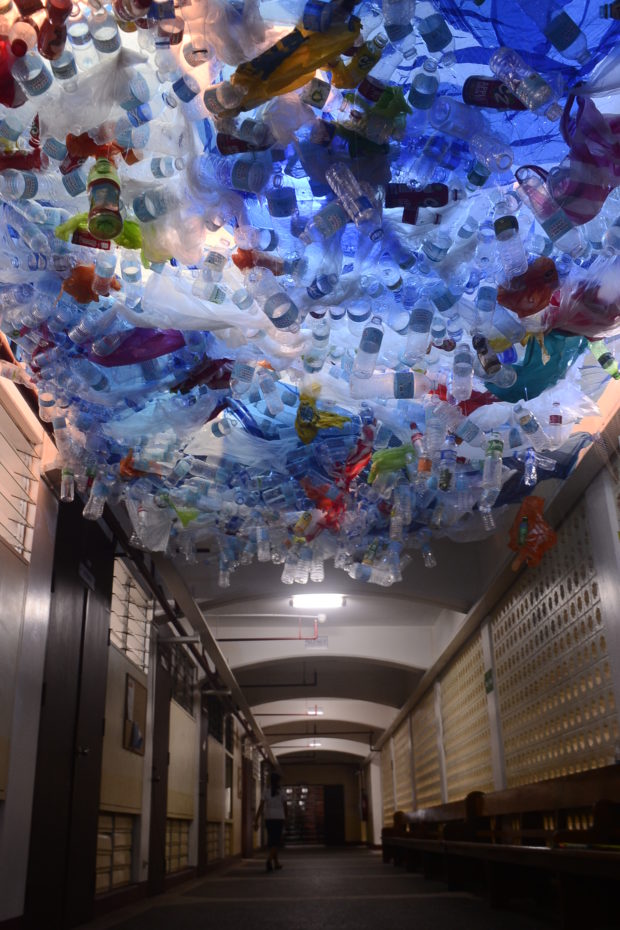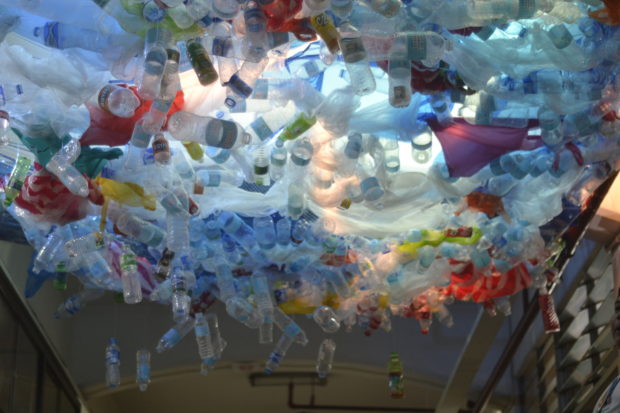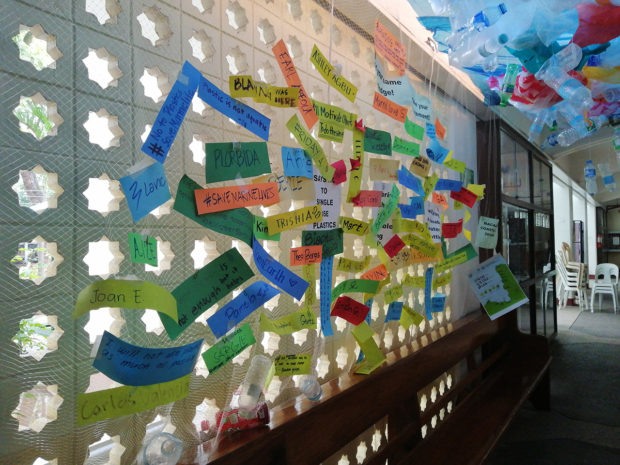LOOK: Art exhibit installed for ‘experience’ under polluted oceans

The Xavier University- McKeough Marine Center (XU-MMC) hangs plastic bags, water bottles and other waste materials for an art installation to simulate what marine life and underwater species experience living under polluted seas. / Photo by XU-MMC
Have you ever wondered what it feels like swimming underwater in an ocean full of plastic waste?
The Xavier University (XU) is immersing the public on what swimming in polluted oceans is like as it hangs plastic bags, water bottles and other waste materials for an art installation to simulate what marine life and underwater species experience living under polluted seas.
The art exhibit was put up through the efforts of the staff and volunteers of McKeough Marine Center (MMC), the university’s research and social development arm for marine science, in line with XU’s culmination of the Social Development Week.
https://www.facebook.com/McKeoughMarineCenter/posts/2249819835079768
Fr. Mars P. Tan, SJ, the director of XU-MMC, said the objective of the project is to campaign against the perennial ocean plastic pollution and to raise awareness on how these deadly materials are plaguing the oceans and seas.
Article continues after this advertisement“The project is an artistic way of using real garbage materials or plastic bottles with some light effects to have a semblance of surface water rubbish as viewed from underwater,” Tan told INQUIRER.net.
Article continues after this advertisement“It’s artistic because the garbage materials attached to a fishing net, it’s blue top cover and the light colors have to be carefully chosen and mixed to give an overall effect which is that of a close-to-real appearance of tons of floating garbage as seen from underwater,” he added.

The Xavier University- McKeough Marine Center (XU-MMC) hangs plastic bags, water bottles and other waste materials for an art installation to simulate what marine life and underwater species experience living under polluted seas. / Photo by XU-MMC

The Xavier University- McKeough Marine Center (XU-MMC) hangs plastic bags, water bottles and other waste materials for an art installation to simulate what marine life and underwater species experience living under polluted seas. / Photo by XU-MMC
The director emphasized that plastic materials clog waterways and cause floods, kill marine animals, lessen the supply sunlight to corals and seagrasses, degrade water quality, poison sea organisms and contaminate water, thereby affecting human beings.
“For Xavier Ateneo, a Jesuit University, the call is important to develop social consciousness and involvement among students,” he said.
Environmental watchdog Greenpeace ranked the Philippines as among the world’s leading plastic polluters of the ocean.
A recent study of British packaging supplier Rajapack revealed that 4.8 and 12.5 million tons of plastics enter the oceans every year, warning that there would be more plastics than fishes in the oceans by 2050.
Tan then encouraged students and guests to visit the installation that dangles from the ceiling of XU’s Science Center and to make pledges on protecting the environment.

Director Fr. Mars Tan, SJ then encouraged students and guests to visit the installation that dangles from the ceiling of XU’s Science Center and to make pledges on protecting the environment. / Photo by XU-MMC
“The work to protect the environment is the responsibility of everyone. It should not just be a project or activity but a way of life that is environmentally friendly and responsible,” he urged.
Tan also said the art was put up because the university is throwing its support to Cagayan De Oro City’s program of banning single-use plastics.